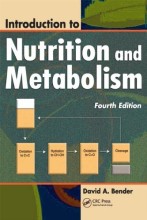General Medicine - Intestinal phases
13 important questions on General Medicine - Intestinal phases
What are the intermediate risk factors of CVD?
- Raised blood pressure
- Raised blood glucose
- Raised blood lipids
- Overweight+Obesity
> all indicate an increased risk of heart attack, stroke, heart failure and other complications.
What do you know about blood lipids, atherosclerosis and thrombosis?
Atherosclerosis is a situation where plaque builds up in the arteries. More specific, under the inner lining of an artery, where it restricts the bloodflow.
Arteriosclerosis is a term for thickening and hardening of arterial walls. (depending on genetic and lifestyle factors)
Arteriosclerosis is a term for thickening and hardening of arterial walls. (depending on genetic and lifestyle factors)
What is the main player in the early stage of atherosclerosis?
Cholesterol, a small organic molecule used in cell membranes and forms steroid hormones.
Cholesterol is a vital molecule in your body, but too much is called hyperlipidemia, which can contribute to atherosclerosis.
Cholesterol is a vital molecule in your body, but too much is called hyperlipidemia, which can contribute to atherosclerosis.
- Higher grades + faster learning
- Never study anything twice
- 100% sure, 100% understanding
What are the consequences of those plaques?
- Ischemia
- Formation of blood clots(thrombi)
What happens when people form blood clots (thrombi)?
They can further narrow or completely block the artery, ot the blood clot or plaque itself can break off and block an artery somewhere else in the body
How can CVD be diagnosed?
- Echocardiogram
- Exercise stress test
- Coronary angiography
- Blood test looking at troponin and creatin kinase
- CT scans and MRIs
How can CVD be treated?
- Nitroglycerin: helps dilate the narrow coronary arteries
- Beta blockers: decrease blood pressure and slow down heart rate. If heart slows down, it doesn't need as much oxygen to function, which is good since little is getting through in cases of coronary artery disease
- Blood thinners or anti-platelets (e.g., aspirin)
- Calcium-channel blockers: reduce blood pressure, among other things
- Statins: cholesterol-reducing medication
- Anti-coagulants: heparin, given after a heart attack
Name some surgical interventions in CVD:
- Angioplasty: Inserting a catheter into the narrowed section of the artery, inflate a balloon and leave a stent to prop up the walls
- Coronary artery bypass surgery: a blood vessel is taken from another pary of the body and used to help blood flow aroung the blockage
How can CVD be prevented?
- Stop smoking
- reduce the amount of salt in the diet
- eat more fruit and vegetables
- regular physical activity
- avoid harmful use of alcohol
Name 5 diseases with high prevalence mortality:
- Heart failure
- Angina
- Myocardial infarction (heart attack)
- Deep vein thrombosis
- Pulmonary Embolism
What do you know about heart failure?
The heart works less efficiently than normal.
Blood moves through the heart and body at a slower rate, pressure in the heart increases. > the heart cannot pump enough oxygen and nutrients. The heart muscle may weaken. The kidneys may respond by causing the body to retain fluid and salt. If it builds up in the arms, legs, ankles, feet, lung or other organs = congestive heart failure.
Symptoms:
Heart failure is often related to coronary artery disease, heart attack, cardiomyopathy.
Blood moves through the heart and body at a slower rate, pressure in the heart increases. > the heart cannot pump enough oxygen and nutrients. The heart muscle may weaken. The kidneys may respond by causing the body to retain fluid and salt. If it builds up in the arms, legs, ankles, feet, lung or other organs = congestive heart failure.
Symptoms:
- congested lungs (shortness of breath, wheezing, dyspnea, orthopnea)
- fluid and water retention
- dizziness
- rapid or irregular heartbeats
Heart failure is often related to coronary artery disease, heart attack, cardiomyopathy.
What do you know about Deep Vein Thrombosis (DVT)?
The formation of a blood clot in veins deep within the body. The 3 main causes are... (Virchow's triad)
2 main symptoms are...
You may be at higher risk of DVT because of your genes or family history, sitting for a long time, long-term bed-rest, pregnancy, using birth control pills.
DVT can be diagnosed from the presence of high concentrations of D-dimers in blood, with ultrasound or other imaging techniques.
- Stasis
- Hypercoagulation
- Damage to endothelial lining of vein
2 main symptoms are...
- pain: begins like a cramp and may intensify
- swelling: occurs in the vicinity of the blood clot
You may be at higher risk of DVT because of your genes or family history, sitting for a long time, long-term bed-rest, pregnancy, using birth control pills.
DVT can be diagnosed from the presence of high concentrations of D-dimers in blood, with ultrasound or other imaging techniques.
What do you know about pulmonary embolism?
A complication arising from deep vein thrombosis that results in a blood clot blocking the pulmonary artery or its branches. Part of the blood clot can break off and can travel to the lungs = embolus. This can cause...
- difficulty breathing (dyspnea),
- an increased heart rate (tachycardia),
- low oxygen in the blood (hypoxemia),
- hypotension,
- pain in the area where the clot has lodged itself,
- damage to the lung,
- a cough,
- death
Try our study magic for free
a PDF, study it super fast
- No sign up, email or credit card needed!
- AI makes unlimited flashcards
- Get unlimited quizzes and tests
- Ask AI anything
Create a notebook
- No sign up, email or credit card needed!
- Have and keep perfect overview
- Make flashcards, notes and mind maps
- Review, test and score!
The question on the page originate from the summary of the following study material:
- A unique study and practice tool
- Never study anything twice again
- Get the grades you hope for
- 100% sure, 100% understanding
Remember faster, study better. Scientifically proven.





























